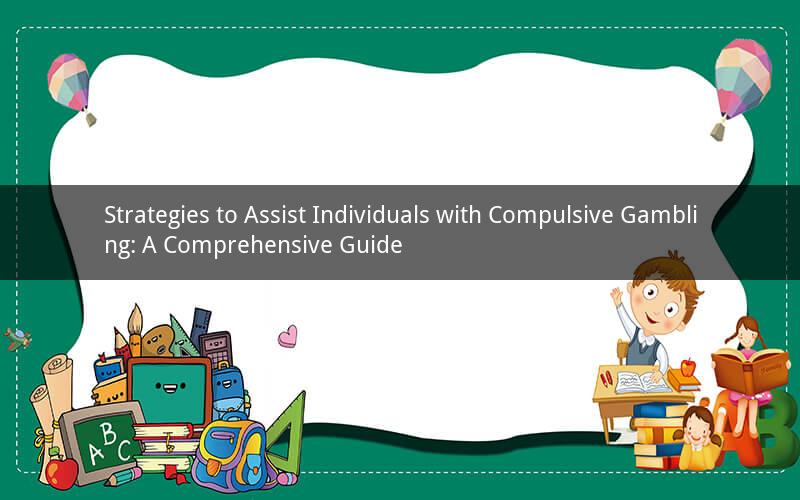
Compulsive gambling, also known as problem gambling, is a serious condition that affects millions of people worldwide. It can lead to financial, emotional, and social problems for both the individual and their loved ones. If you know someone who is struggling with compulsive gambling, it's important to understand how to help them. This article provides a comprehensive guide on strategies to assist individuals with compulsive gambling.
Understanding Compulsive Gambling
Compulsive gambling is characterized by an inability to control the urge to gamble, despite negative consequences. It's a type of addiction that can be difficult to overcome. Here are some key points to understand about compulsive gambling:
1. Compulsive gambling is a mental health disorder.
2. It can affect people of all ages, genders, and socioeconomic backgrounds.
3. Compulsive gamblers often lie to hide their addiction from family and friends.
4. Treatment is available, and recovery is possible.
Strategies to Help Someone with Compulsive Gambling
1. Educate Yourself
The first step in helping someone with compulsive gambling is to educate yourself about the disorder. Learn about the signs and symptoms, the risks associated with compulsive gambling, and the available treatment options. This will help you understand the situation better and provide the necessary support.
2. Encourage Them to Seek Professional Help
Professional help is crucial for individuals struggling with compulsive gambling. Encourage your loved one to seek therapy, counseling, or join a support group. A therapist can help them develop coping strategies and address underlying issues contributing to their gambling problem.
3. Provide Emotional Support
Emotional support is essential for individuals with compulsive gambling. Be there for them during difficult times and offer a listening ear. Avoid judgment or criticism, as this can worsen their feelings of guilt and shame. Instead, focus on empathy and understanding.
4. Help Them Develop a Budget
One of the most significant consequences of compulsive gambling is financial strain. Help your loved one create a budget to manage their finances and pay off any debts incurred due to gambling. This may involve setting up a budgeting app, monitoring spending, and seeking financial counseling.
5. Encourage Healthy Alternatives
Gambling can be an escape for individuals struggling with compulsive gambling. Encourage them to find healthier alternatives to cope with stress or boredom. Activities such as exercise, hobbies, and socializing can help fill the void left by gambling.
6. Support Them in Recovery
Recovery from compulsive gambling is a long-term process. Be there for your loved one throughout their journey. Attend support group meetings with them, and offer to help with any challenges they may face. Remember that relapse is possible, so stay supportive and patient.
7. Set Boundaries
It's important to set boundaries to protect yourself from the negative consequences of compulsive gambling. This may involve limiting contact with your loved one during certain times or situations, or avoiding discussions about gambling.
8. Seek Support for Yourself
Caring for someone with a compulsive gambling problem can be challenging. It's important to seek support for yourself as well. Consider joining a support group for family members of individuals with compulsive gambling, or seek counseling to help you cope with the stress.
Frequently Asked Questions
Q1: How can I tell if someone has a gambling problem?
A1: Look for signs such as secretive behavior, increased financial stress, changes in mood, and neglect of responsibilities. If you suspect a problem, it's important to address it promptly.
Q2: Can compulsive gambling be cured?
A2: Compulsive gambling is a chronic condition, but it can be managed with proper treatment and support. Recovery is possible, but it requires ongoing effort and commitment.
Q3: What role does therapy play in treating compulsive gambling?
A3: Therapy is a crucial component of treating compulsive gambling. It helps individuals develop coping strategies, address underlying issues, and learn to manage their addiction.
Q4: Can compulsive gambling lead to legal problems?
A4: Yes, compulsive gambling can lead to legal problems, such as fraud, theft, or embezzlement. It's important to address the addiction to prevent these consequences.
Q5: How can I help my loved one recover from compulsive gambling?
A5: Help your loved one seek professional help, provide emotional support, encourage healthy alternatives, and set boundaries for yourself. Be patient and supportive throughout their recovery journey.